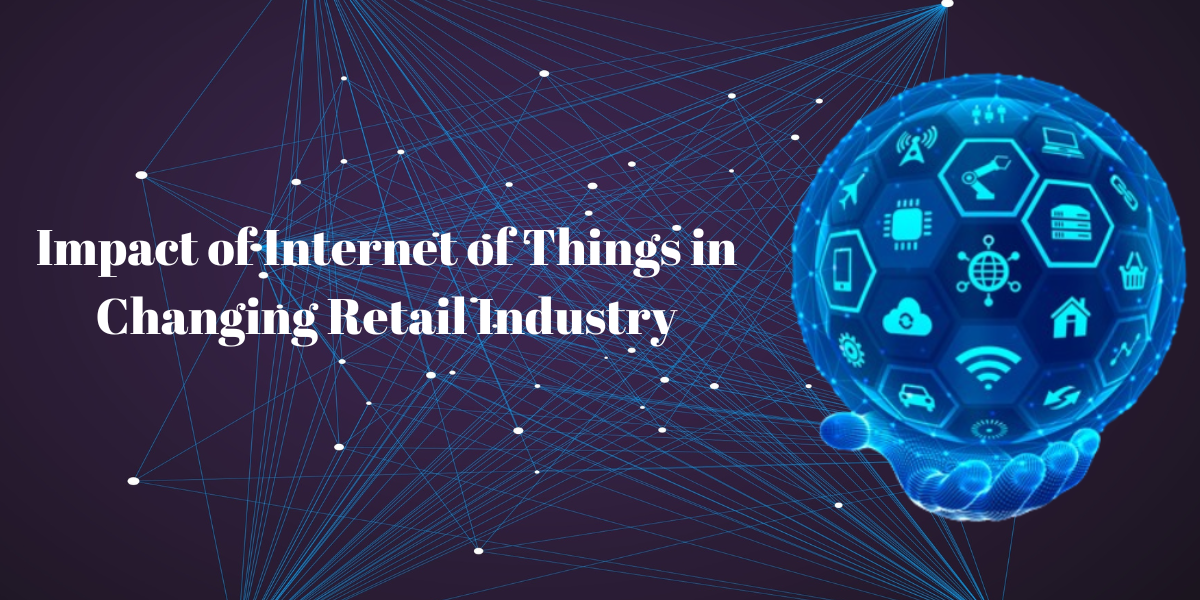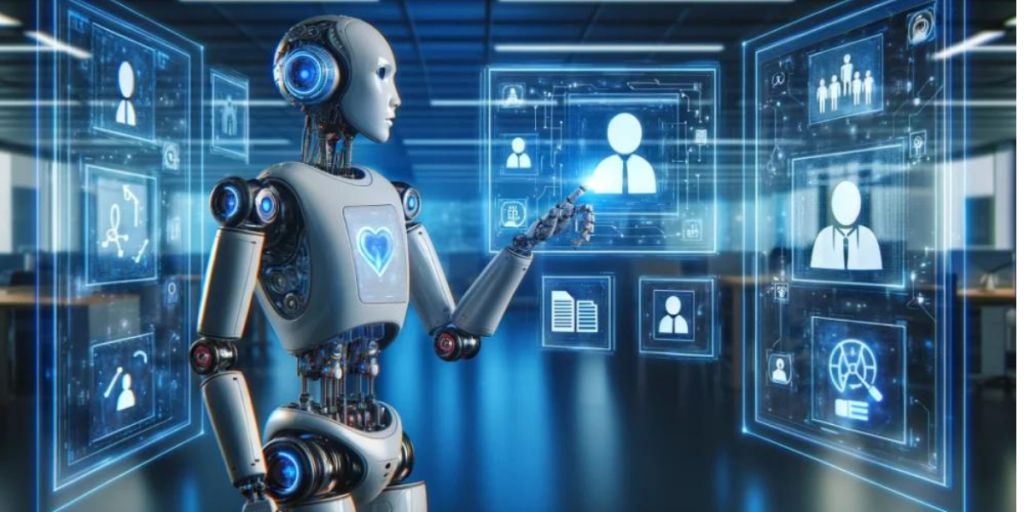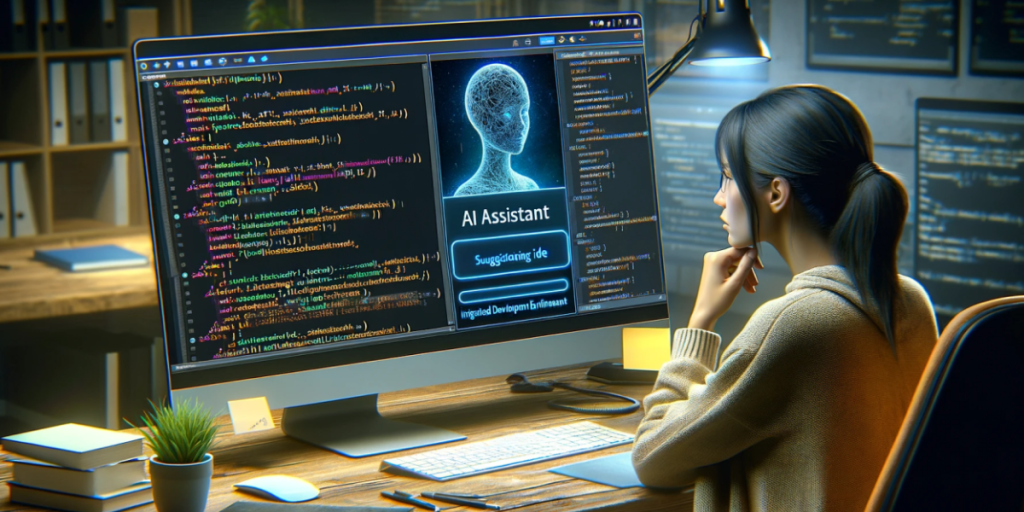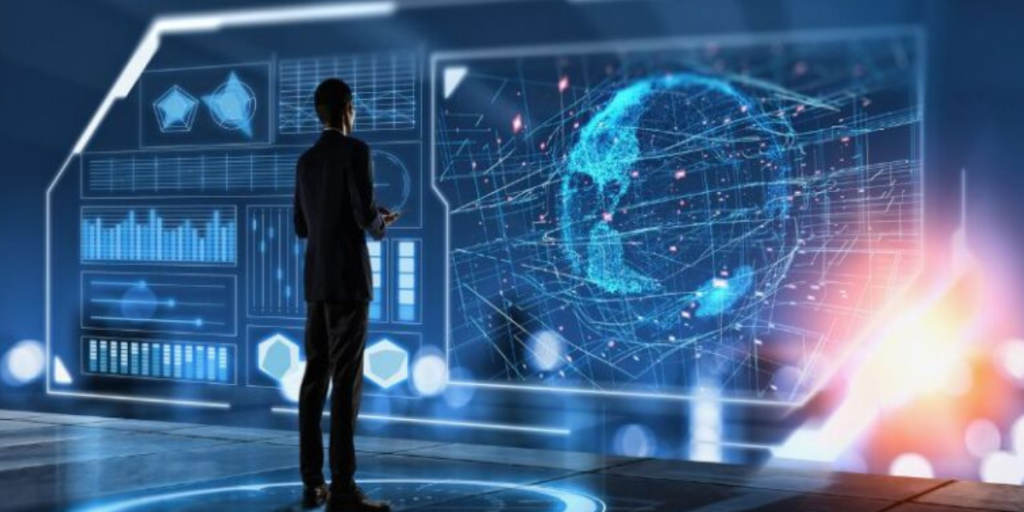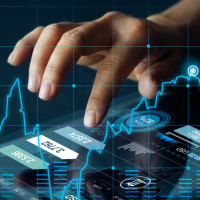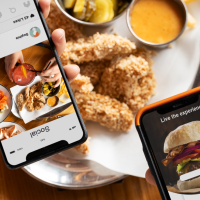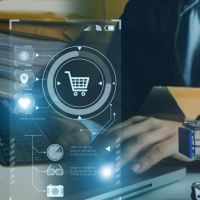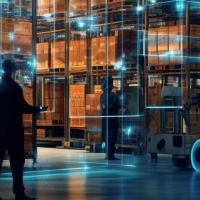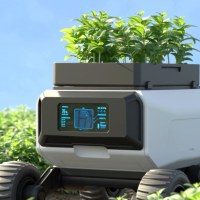The Internet of Things, commonly called IoT, is an interconnected network of machines and remote sensors connected via the Internet that gathers, transfers, and stores information online. IoT is one of the latest technological industry trends, offering excellent connectivity. In 2022 alone, the market for IoT reached $14.5 billion; by 2025, this figure is projected to surge 19.6 percent and reach $35.5 billion!
Retail companies could experience profound transformation through IoT technologies in conducting business, communicating with their customer base, and delivering goods and services to consumers. Though this technology has already been employed on various equipment devices and machines used for retail operations.
But the full potential must still be realized for greater business efficiency in retail-dominated environments. Even though its implementation into retail businesses may only begin taking effect shortly! IoT Development Services is expected to transform how retail industries function soon. Significant factors, including dramatic price, decreases for IoT sensors and devices, consumers’ greater desire for seamless shopping experiences, all drive IoT growth trends forward.
In this piece, we will investigate how the Internet of Things has altered retail by examining examples of its real-world applications and effects.
What Does Smart Retail Concept Means?
Smart retail is a concept that enriches the traditional retail experience with new technologies. The idea behind intelligent retail goes beyond encouraging a consumer to buy something, increasing sales and growing revenues. The concept behind intelligent retail is to give customers better-designed interactions, which are likely to have a positive effect on their loyalty as well as their need to return to the same shop time and time again.
To achieve this objective, it is essential to be focused on every step of a customer journey, which begins when a customer sees an ad for a grocery store (or its advertising). Then continues until the time that person goes out with their purchase. Smart retail solutions aim to enhance each aspect of the journey by customizing the customer experience and increasing the level of engagement with customers.
What Role Does The Internet Of Things Or Iot Have In The Retail Industry?
Internet of Things or IoT is a powerful tool in retail that includes warehousing, stocking, and warehousing. It increases the flexibility and proficiency of objects that are used every day. Retailers have utilized RFID (Radio Frequency Identification) abilities for some time. If we think of applications of cutting-edge technologies and rapid advancements in connectivity and other devices, IoT or the Internet of Things has brought huge advancements. IoT is also getting huge boosts from the growing popularity of e-commerce companies.
IoT assists in maintaining the equilibrium between offline and online retailers. The Internet of Things, or IoT, gives IoT retailers a variety of options to better fulfill their customers’ requirements. The application of IoT in retail is increasing, and its potential is being investigated in different segments, including customer comprehension management, supervision of retail, decision production, and warehouse organization.
Incorporating IoT-equipped devices developed by IOT Product Design Company in the retail sector can help retailers be more creative and develop innovative solutions to draw customers’ attention and build lasting relationships. The Internet of Things in the retail business can create opportunities for excellent collaboration in product distribution and service provision.
Use Cases Of The Internet Of Things In The Retail Industry
Let’s look at some of IoT’s most significant retail benefits.
Better Customer Experience
IoT applications for retail can enhance the brick-and-mortar experience by collecting information and incorporating it into customers’ profiles. With the help of sensor devices and wearable technology, retail stores will be able to more accurately predict customers’ behavior and desires. The customers will then receive pertinent advertisements and customized deals.
IoT can vastly enhance customer satisfaction across all areas. From obtaining user information and purchase patterns to analyzing consumer preferences, preferred products, and information in real-time. All this to provide accurate and reliable advice based on these data points, IoT is a broader technology that could transform the customer’s experience at retail quickly and effortlessly.
With the help of essential data about customers, retailers can customize their sales and marketing strategies to save time with ads and digital marketing campaigns. This usually leads to low customer satisfaction scores. Thus, firms offering relevant items and services are focused on providing a unique customer experience.
Optimized In-House Staff
It’s challenging for retail stores to allocate help to employees for customers’ ease. IoT technology like cameras, algorithms for facial expression recognition, and motion sensors make it possible to recognize customers who have spent a long duration in a single location and have several questions. Then, the IoT ecosystem will notify customers in the vicinity via a watch application or a mobile.
A Better Supply Chain Management
IoT applications in retail stores, such as RFID tags and GPS sensors, provide an entire picture of the product’s movements from the factory through store shelves and finally to consumers. Retailers can review detailed data on the transit time and temperature for storage at a moment’s notice. IoT is beneficial for transporting perishable items, allowing retailers to react quickly during times of fluctuations in temperature and food spoilage, thereby preventing significant loss.
Buyer Behavior Tracking
Sensors for occupancy provide valuable information regarding store traffic patterns and retention time in the high-end areas of the product. These data allow for better design of merchandising in the store and targeted marketing through powerful digital display advertisements. As well as calculated space allocation and layouts for aisles. It can monitor the time taken to the checkout counter to improve customer service through additional self-checkouts and personnel.
Better Technology For Retail Automation
Another benefit of Internet Of Things Development Services in the retail industry is automation, which aids in eliminating inefficiencies and reducing the need for manual labor. This results in improved service and a higher level of competition. Today’s Internet of Things devices can perform tasks without human involvement, including security monitoring, inventory auditing, and predictive maintenance. This frees employees to focus on more strategic work, such as customer retention.
IoT Enables Smarter Shopping
The Internet of Things (or IoT gives retailers a chance to monitor the needs of the customer. By using the security of analytics SAS, the process becomes simple for store managers to fulfill the requirements of their customers. In particular, it is easy for the store owner to give a discount or discount for a specific buyer based on the visit date or prior shopping.
Beacons, also known as small Bluetooth devices, can send messages to phones by their location and the speed at which they can reach. Customers can receive notifications about sales, offers, coupons, and other events. This also assists in sending reminders to customers occasionally. This method can satisfy both the buyer and the seller.
Thanks to IoT retailers, they can analyze customers’ needs and customize their shopping experience based on their previous browsing patterns and the merchandise they are interested in. This technique efficiently creates a personalized shopping experience for customers in the IoT retail marketplace.
Improved Scope Of Inventory Management
IoT could help retailers improve their inventory management processes by using real-time data about supply chain processes, sales and customer demand. It helps businesses stop overstocking and decrease losses.
This also permits them to add new items in line with consumer demands and dispose of expired or old items. Additionally, it helps increase the efficiency overall of the firm and cut costs related to the stocking and storage of goods offered.
Smart Store
Smart shopping is a fantastic idea. IoT can be a part of the customers who visit the location being analyzed at a real-time rate. Advanced analytics will be able to explore the movement of shoppers in the store. This includes the inventory levels, merchandise shows, and interactions between workers and shoppers. Internet of Things sensors and data analytics can be used to perform easy A/B monitoring. Why? To determine which improvements to the layout of the store and displays of merchandising are effective in attracting customers and keeping them engaged.
In-store allows retailers to incorporate in-store, and retailers can integrate the Internet of Things in intelligent stores impressively. With beacons, retailers can instantaneously send push notifications about discounts and offers to smartphone customers within their coverage region. They can also provide simple store navigation and collect consumer information to deliver precise and personal information.
Intelligent stores connected to the Internet of Things help understand how consumers think and resolve issues. The intelligent store can spot opportunities to apply data-driven strategies to improve store shopping experience.
Advanced Analytics Capabilities
Through the advanced connectivity offered by IoT, retailers can collect and evaluate vast quantities of data relating to customer behavior, physical stores, items, and stock levels. These data sources can help retailers analyze continuously to enable more efficient business decisions.
Highly Streamlined Operations
IoT solutions can automate many retail industry tasks and processes. From monitoring temperature-sensitive goods to automating checkout processes to tracking employee performance and productivity. They also assist businesses in streamlining their processes for maximum efficiency with fewer manual work requirements overall.
The IoT is also a way to keep track of supply chains and product availability, which is a lengthy and manual process. This helps reduce costs and more efficiently manage products. It also eliminates any errors or problems in managing supply chains, allowing them to cope with consumers’ needs.
Personalized Discounts
If you have many repeat customers, you’d want to thank those loyal ones. Using IoT technology, you could install sensors in the shop that will provide loyalty discount coupons to specific customers who are near items with their phones. Only if they register to join a loyalty program beforehand.
Furthermore, you could use IoT to monitor items that your customers are browsing online and then offer an individual discount while she is in the store. Imagine your customer browsing your bags on the Internet, after which, at the counter, she gets a price reduction for her most loved purse. Instead of offering discounts for a variety of goods, you can customize each offer using IoT to increase your sales.
In the end, finding methods to integrate IoT devices into your business’s day-to-day operations is a matter of creativity and foresight. However, the advantages of IoT for retail, like the ones mentioned above, could help you discover creative ways to gain reliable and long-term clients.
Increased Sales and Revenue
Incorporating IoT into a retail company can help boost sales and profits. Retailers can use this technology to collect accurate data about their customers and analyze that data to enhance their marketing plans and sales strategies.
IoT will help businesses identify consumer behavior and buy patterns, which can result in more efficient advertising campaigns and a significantly improved customer experience. It also helps ensure that retailers can more efficiently target their customers by tailoring ads or launches to their interests and behavior.
Smart Transportation
Thanks to IoT, the transfer of items from one location to another has been made more simple. GPS-equipped devices help retailers do this. But technology like the Internet of Things offers better maps, optimization of paths, and maintenance for transport with better accuracy.
RFID (Radio Frequency Identification) can ensure the security of products in the supply chain from the manufacturing stage to the point of sale. The business can save this data within a centralized logistics information system or an automated, unified application network.
Digital Signage
Retailers have begun using digital signage technology, such as iPad displays, adaptive touch screens, and in-store displays, to digitally communicate with their customers. Certain digital signage models employ AI algorithms to analyze incoming buyers, anticipate their needs, and display advertisements suitable for customers.
Here are just a handful of ways IoT’s impact on the retail market is growing every day. The growing popularity of Internet purchasing has forced retailers to look at methods to enhance their buying experience, and IoT is among their most profitable options.
IoT is set to fundamentally alter the retail business in the near future. It will enable retailers to develop more targeted marketing strategies and increase the percentage of profit-making conversions. However, consumers profit from IoT since they enjoy the most enjoyable shopping experience in stores and the most competitive prices from merchants.
Predictive Maintenance
Predictive maintenance has emerged as an essential component of the retail business, precisely thanks to IoT. IoT sensors help retailers detect the conditions of their equipment and anticipate problems before they happen. For example, Walmart uses IoT applications and sensors to track the temperature of its refrigerator and other equipment. By monitoring temperature in real-time, the sensors guarantee that food is safe and compliant with the law.
This is an excellent example of IoT or the Internet of Things in retail and demonstrates the ways in which IoT could reduce downtime and the cost of maintenance. The ability to predict maintenance through IoT can also prolong the life of the equipment, guaranteeing continuous service and avoiding unexpected disruptions during retail operations.
Challenges in Implementing IoT in Retail
Although IoT offers new possibilities for retailers, it presents several problems that could be solved. Finding a balance between practicality and cost efficiency is an arduous challenge for retail stores. Retailers face these significant challenges when implementing IoT applications within the retail business.
Data Security and Privacy
The security and privacy of your data are the primary concerns when using IoT for app development in the retail sector. Retailers embracing IoT and collecting vast customer data require a robust security system. The data that is stolen could result in significant security breaches as well as loss of customer confidence. Retailers should, therefore, adopt advanced encryption techniques and secure data storage systems.
By putting a premium on privacy and security, retail stores can not only secure their customers’ data but also improve their standing within the constantly changing digital world of the retail industry.
Increased Privacy Concerns
As more people use IoT, Retail businesses will have access to vast quantities of data about their consumers. This could include personal data and data about consumer behavior, such as purchase patterns. This raises concerns about privacy concerns and the possibility of businesses misusing the data.
Integration Complexity
The introduction of IoT within the retail space is a significant problem of integration complexity. Retailers frequently face difficulties integrating IoT solutions within the existing frameworks used by retail stores. This is because modern IoT solutions must be aligned with outdated infrastructures.
To ensure seamless operations, you need an attentive approach, significant investment in technology, and skilled IT expertise. Successfully implementing IoT within the retail industry will help maximize its benefits, improving efficiency, productivity, and customer satisfaction. Navigating this complicated process is crucial for retailers looking to maximize IoT’s potential in a fierce market.
Scalability Issues
Problems with scaling pose a major problem for retailers, particularly when it comes to expanding IoT infrastructure. It is often difficult for retailers to ensure that their IoT systems can handle the growing data volumes and more connected devices. Scalability must be effective to ensure efficiency while keeping current with the market’s demands.
The rapid growth of IoT in retail must be managed to support business development without degrading system performance. This will require investment in versatile IoT platforms that can adjust to changes in business size and customer demands, assuring steady growth and success in the changing retail landscape.
Cost of Implementation
Implementation costs are an essential factor to consider when looking at the importance of IoT in retail—the initial investment in IoT infrastructure, including hardware, software, and integration services. In addition, there will be regular costs associated with updates, maintenance, and scalability requirements.
Retailers need to carefully assess the value of the investment, considering the costs initially incurred and future benefits. The expense of implementing IoT within retail is not solely financial; it is also the time and money required to train employees and optimize systems. Adequate budget management and strategic planning are vital for retailers who want to establish and sustain IoT technology efficiently.
Staff Training and Adoption
Retail businesses will soon access vast quantities of customer data through IoT technology. This data could include personal data such as consumer behavior and purchase habits, which could raise concerns about privacy and businesses’ possible misuse of it.
Adopting and training employees are also significant issues for implementing IoT to automate retail. Introducing IoT technology into retail settings requires extensive training for staff to use it effectively. Transitioning from using IoT in retail may require more work for staff members who are used to traditional retail practices.
Effective training programs must be implemented to ensure that employees are comfortable and knowledgeable about the latest technology. This includes not only knowing how to use IoT devices but also understanding the best way to analyze and act in response to the information they supply. A proper training program and support for adoption are essential to maximizing the advantages of IoT for retail. This will ensure the smoothest transition possible and effective operations.
Addressing these issues is vital for a successful IoT integration into retail. Overcoming these challenges can unlock new opportunities to improve efficiency and increase customer satisfaction.
Added Complexities
IoT Device Management can be challenging because only some people are well-equipped to handle today’s latest technology. Furthermore, IoT systems may require significant resources like IT staff and electricity. Therefore, companies must prepare for the costs before purchasing the IoT infrastructure.
Conclusion
IoT-powered solutions such as IoT Application Development and connected devices are incredibly helping to boost the growth of retail businesses. It will be fascinating to see what other tests IoT could bring to the public. Most major retailers have already embraced IoT developments and implemented IoT solutions into their core business functions.
From enhancing the user experience with smart mirrors and deals based on location to enhancing supply chain efficiency with live tracking in real-time and predictive maintenance, IoT can transform many areas of business.
Retailers who embrace IoT will be ahead of the curve in an ever-changing market while also meeting the growing demands of today’s technologically savvy customers.
To stay competitive in today’s huge market, it is vital to keep your company up-to-date with the latest technology developments. If you’re looking to implement efficient IoT solutions in your retail enterprise, then connect with our professionals.

